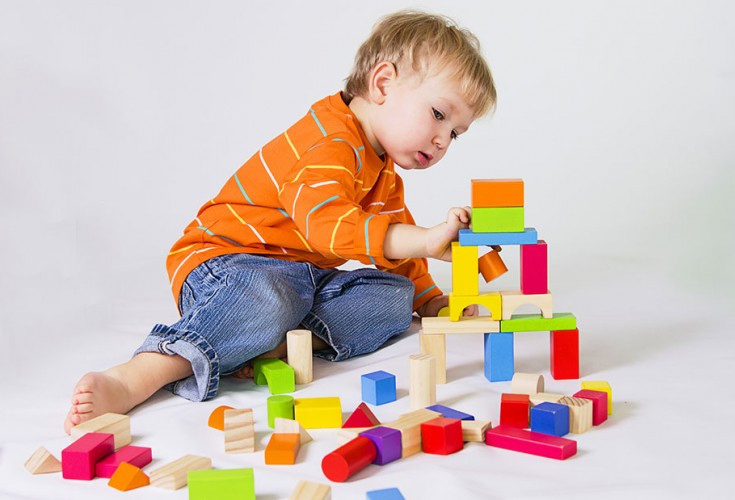By the time a child is six years old, the brain has reached 90% of its adult size, and children continue to absorb a staggering amount of information from their experiences and environment. The first three years of a child’s life are one of rapid growth and development.Research has consistently shown that good early childhood development will have a direct positive impact on a child’s long-term health outcomes and will improve future opportunities, school attainment, and even earning potential.5 Particularly important is the impact of this period on a child’s emotional and social development, which is essential for their future confidence, communication, relationships, community inclusion, and mental health. These early experiences, both good and bad, lay the foundation for a child’s survival, growth, health, and wellbeing.3,4

The global sector of child health is aware of the significance of early childhood development and has shifted its focus to emphasize that children no longer have the right to simply survive.We can see long-term, transformative change throughout our global society as children become better educated, less poor, and so on when they are supported to thrive.
The World Health Organization states, “Commitment to early childhood development can be the catalyst for enabling children to thrive, and thereby transform health and human potential.”In addition, the majority of national laws and the United Nations Convention on the Rights of the Child (1989) emphasize that every child has the right to live in a safe, loving, and nondiscriminatory environment.Health care, education, and nutrition are essential for children to achieve their full potential.To realize these rights, families, communities, governments, and healthcare providers must collaborate.
How can we encourage healthy development in children?
Nurturing care for children is a crucial part of their development.“Nurturing care is what the infant’s brain expects and depends upon for healthy development,” as one quote puts it, “Nurturing care is what the infant’s brain expects and depends upon for healthy development.”4
Giving Care That Responds:It is essential for a child’s health, education, and social relationships to observe and respond to their physical, psychological, and emotional needs.
Safety and security:Numerous threats are extremely susceptible to young children’s environment.Children who don’t have a parent who makes them feel safe and secure can withdraw socially and act scared of adults and other kids.
Opportunities for Children’s Education:Learning begins when a child is born, not when they start going to preschool, kindergarten, or school.A child’s development of motor coordination, social competence, resilience, creativity, and learning potential will be aided by this early learning.Open doors for early learning are advanced through play, correspondence and feeling from different kids and grown-ups.

The global child health sector recognises the importance of early child development, and has shifted its focus to highlight that it is no longer enough for a child to simply survive, children have the right to thrive. When children are supported to thrive, we can see long-term, transformational change across our global society, as they are better educated, less poor and so on.
“Commitment to early childhood development can be the catalyst to enable children to thrive, and thereby transform health and human potential” – World Health Organisation: Survive, Thrive, Transform
Additionally, the United Nations Convention on the Rights of the Child (1989), and most national laws, emphasise that all children have the right to live in a secure, loving environment, free from harm, abuse and discrimination. Children have the right to the healthcare, nutrition and education required to reach their full potential. Parents, family members, communities, governments and healthcare providers need to work together to fulfil these rights.
How do we support healthy child development?
A critical factor in child development is that children receive nurturing care. Nurturing care ensures a child’s environment is focussed on their needs, health, nutrition, safety, emotional support and social interaction.4 Simply put, “Nurturing care is what the infant’s brain expects and depends upon for healthy development”.
Children grow and develop best when parents give a child affection, attention and stimulation. The World Health Organisation’s Nurturing Care Framework11 asks that parents monitor and promote child development by focusing on five key areas
Good Health: Parents should encourage good health by protecting the child from household and environmental danger, adopting good hygiene practices, and using promotive, preventive and curative healthcare services. Parents should also protect the child’s emotional state by responding affectionately and appropriately to their child’s needs.Adequate Nutrition: Essential micronutrients are needed for a child’s brain and body to develop, both during a mother’s pregnancy and in the early period after birth. Essential nutrients may include proteins and fats to help the body grow and vitamin A to build the child’s immune system.Responsive Caregiving.
Play is an essential part of a child’s development, despite the fact that it is frequently regarded as a frivolous activity.Playing is, in a nutshell, learning.Children learn a variety of skills through play, including problem-solving, creativity, emotion expression, and socialization. Play can involve all of a child’s senses (sight, hearing, smell, touch, and taste).Importantly, play strengthens a child’s attachment to their parents and other caregivers, thereby fostering self-esteem and confidence.
Parents should be guided through a variety of play activities, including role play, dancing, singing, and drawing, by healthcare professionals, educators, and other social care providers.To keep a child interested and give them a chance to learn new skills, it’s important to give them a variety of stimuli.



